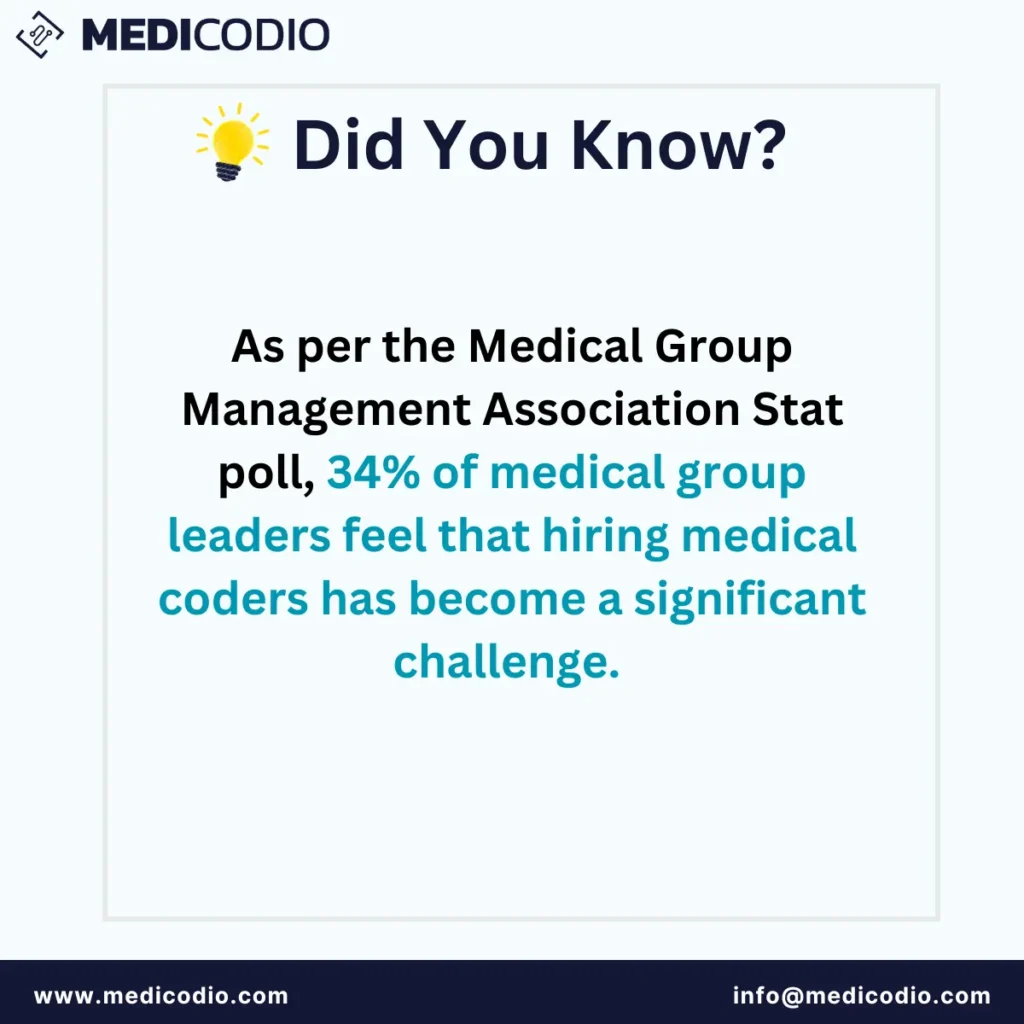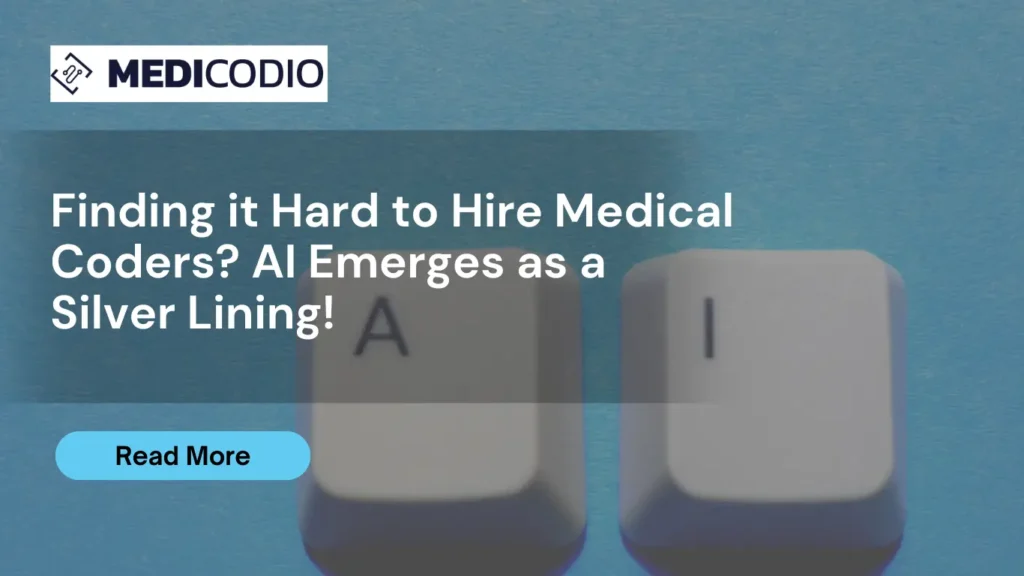Medical coders emerge as the indispensable linchpin in the intricate web of healthcare, comprising hospitals, physician practices, and skilled nursing facilities. They bridge the gap between dedicated clinicians and insurance entities, translating patient care details into a language that facilitates reimbursement calculations under specific policies.
Unveiling the Crucial Role of Medical Coders
At the core of this dynamic lies the ability of a medical coder to distill information from a care provider’s documentation and meticulously assign accurate diagnosis and procedure codes. Coders generate the essential codes by analyzing a spectrum of data, including doctors’ notes, lab test orders, medical imaging studies, and prescription requests. Without these codes, insurance claims face rejection or are processed with inaccurate reimbursement amounts. Moreover, coders handle the intricate task of re-filing rejected claims and managing records during audits, playing a pivotal role in optimizing facility finances and shielding against liability related to insurance claims.
Qualifying the Ideal Medical Coder
To identify the qualifications necessary for a proficient medical coder, outlining specific expectations is paramount. While some coders focus solely on coding, others may handle additional tasks such as data entry, billing, and claim follow-up. The industry standard often leans towards hiring Certified Professional Coders (CPC), ensuring a comprehensive skill set. Specialty clinics may even seek coders with additional certifications tailored to their specific field, enhancing expertise in areas like rheumatology coding or cardiology coding.
Beyond technical expertise, multitasking proficiency is a coveted trait. A medical coder’s day may involve retrieving and reviewing medical records, assigning accurate codes, reviewing documents coded by others, creating reports, and submitting claims. Experience with various insurers, familiarity with both paper and electronic claims, and expertise in specific electronic health record (EHR) software are additional qualities sought by healthcare facilities. Strong organizational and communication skills, coupled with an eagerness to learn, are crucial for navigating the fast-paced environment.
Character is of utmost importance as well, considering coders handle confidential medical information and manage significant sums in insurance reimbursement daily. Hence, due diligence involves scrutinizing references and backgrounds during the hiring process.
Why hiring Exceptional Coders is a challenge?
A recent poll conducted by the Medical Group Management Association reveals that in 2023, 34% of medical group leaders reported facing challenges in hiring medical coders.
The current landscape presents a formidable challenge in securing adept medical coders, primarily due to the recent transition to ICD-10 and 11. With exponentially more codes, and longer and information-rich code sets, ICD-10 promises enhanced health data tracking. However, the transition has posed substantial hurdles for physician practices. Those possessing experience in ICD-10 and ICD-11 are particularly valuable. Given the demanding nature of the profession, finding skilled coders requires persistence, especially during the ongoing adjustment period to ICD-10.

Can AI Bridge the Gap in the Medical Coding Workforce?
The persistent shortage of skilled medical coders poses a significant challenge within the healthcare industry. This makes it hard for healthcare leaders to hire medical coders. While revenue cycle leaders look for a reliable solution to manage the complexity of medical coding and denials management, AI medical coding solutions have emerged as a game-changer, offering significant time and cost savings.
These innovative tools can play a pivotal role in mitigating the shortage and enhancing overall efficiency in medical coding processes. Here’s how AI medical coding assistants can contribute to resolving the shortage:
Automated Coding Process: AI medical coding assistants can swiftly analyze vast amounts of medical documentation, extracting relevant information to automatically generate accurate codes. This streamlines the coding process, reducing the manual workload on human coders and allowing them to focus on more complex cases.
Enhanced Accuracy and Consistency: AI technologies excel in maintaining consistency and precision. By leveraging machine learning algorithms, medical coding assistants ensure a high level of accuracy in code assignment, minimizing errors that may result from human oversight or fatigue. This, in turn, reduces the need for extensive manual review and correction.
Increased Productivity and Throughput: AI assistants can significantly increase the throughput of medical coding tasks. By quickly processing a large volume of data, these tools enable healthcare organizations to handle a greater number of cases efficiently, addressing the shortage by optimizing existing resources.
Assistance in Complex Coding Scenarios: AI medical coding assistants can excel in handling intricate and complex coding scenarios. They provide valuable support to human coders by offering suggestions, references, and insights in cases that may require specialized knowledge or involve intricate coding rules.
Time and Cost Savings: By expediting the coding process and reducing the need for extensive manual labor, AI coding assistants contribute to substantial time and cost savings. This is particularly beneficial in the context of the current shortage, allowing healthcare organizations to optimize their resources more efficiently.
Scalability and Flexibility: AI coding assistants offer scalability to adapt to varying workloads and coding demands. Whether handling routine cases or managing a surge in coding requirements, these systems can efficiently scale their capabilities to meet the dynamic needs of healthcare organizations.
Human-AI Collaboration: Rather than replacing human coders, AI coding assistants work collaboratively with them. This synergy leverages the strengths of both human expertise and machine efficiency, fostering a collaborative environment that maximizes productivity and ensures the highest quality in medical coding.
In conclusion, the integration of AI medical coding assistants presents a transformative solution to the shortage of skilled medical coders. By harnessing the power of artificial intelligence, healthcare organizations can optimize coding processes, improve accuracy, and address the challenges posed by the ongoing shortage in this critical domain.
A Case in Study: AI for Medical Coding
AI-powered tools are steadily proving their worth in the healthcare RCM space.
In the year 2023, Henry Ford Health took a significant step forward by integrating artificial intelligence (AI) into bedside procedures for medical coding, a move that revolutionized their approach to handling more than 700,000 services annually. This AI implementation accounted for a substantial 20% of the overall coding costs. According to Joann Ferguson, the Vice President of Revenue Cycle at Henry Ford Health, this strategic adoption of AI brought about transformative benefits.
Ferguson highlighted that automating bedside visit coding proved to be a game-changer for the healthcare institution. By leveraging AI, they successfully optimized resources and directly addressed staffing challenges. The impact was twofold – a reduction in workloads for medical coders and a simultaneous enhancement of financial performance for the organization. The symbiotic relationship between AI and human coders resulted in a win-win scenario, significantly boosting job satisfaction among the coding staff.
Beyond the immediate gains in workflow efficiency and resource optimization, the implementation of AI at Henry Ford Health had broader implications. The integration of AI not only streamlined operational processes but also played a crucial role in bridging patient experience gaps. Additionally, the AI system demonstrated its capability to identify charge discrepancies, contributing to more accurate and transparent billing processes.
He concludes by asserting that the future of healthcare management has arrived with the successful incorporation of AI. This technological advancement goes beyond mere efficiency gains, driving operational excellence and yielding improved outcomes for both the healthcare institution and its patients. The narrative paints a picture of a healthcare system embracing innovation to not only address immediate challenges but also to pave the way for a more effective and patient-centric future.
Conclusion
If you are one of those healthcare or RCM leaders finding it hard to Hire Medical Coders, then give CODIO a try. CODIO is an AI medical coding assistant. Our technology is engineered to optimize billing processes, minimize errors, and maximize revenue, all while ensuring compliance and improving patient satisfaction.





